|
El pasado mes de septiembre nuestro artículo colaborativo "Paleogenómica y Bioarqueología en México" fue publicado en la revista Cuicuilco de la Escuela Nacional de Antroplogía e Historia de México. El mismo cuenta también con la participación de los investigadores Miriam J. Bravo López, Miguel A. Contreras Sieck y Kelly E. Blevins. Es el primer artículo reseña sobre ADN antiguo en español que conocemos hasta el momento. En el mismo reseñamos la larga trayectoria de investigación con ADN antiguo en México, y sus aplicaciones a la bioarqueología, con especial énfasis en los estudios de historia poblacional humana y paleopatología. También discutimos la necesidad de llevar a cabo estudios de ADN antiguo de forma ética y sustentable en América Latina; y concluimos con una reflexión sobre el prometedor futuro del campo de la paleogenómica en México. El artículo esta disponible de forma gratuita en el portal de la revista Cuicuilo. Last month I was invited to participate as a speaker in the Universidad de Puerto Rico Humacao PROUD program's STEAM + Storytelling series. Hosted by Dr. Kevin Alicea Torres. We had a great conversation about my experience as a Puerto Rican scientist investigating the history of my own island of Puerto Rico, the current status and future of anthropological genetics, and finally, some ideas on how we can move towards a more just and equitable future for women and minorities in STEM. To check out the recording of this event click here. [En español] In lieu of the organization's annual meetings, this November the American Association of Anthropologists organized the Raising of Voices online live-streaming event. With help from program chair Mayanthi Fernando and support from Agustin Fuentes, I organized a roundtable discussion panel on the topic of Decolonizing Anthropological Genetics. In this session we discussed how a decolonizing approach can create a more equitable and sustainable anthropological genetics research practice for 2020 and beyond. Themes included (1) ethics and responsibilities of working with human remains and tissues; (2) community engagement and equitable collaboration in anthropological genetics; (3) sovereignty and governance of genetic datasets; (4) engagement with the social implications of genetics research. A recording of our session is available below. Session panelists: Krystal Tsosie (Vanderbilt University), Rick W. Smith (George Mason University), Chip Colwell (Sapiens), Jennifer Wagner (Geisinger Institute), Keolu Fox (University of California San Diego). This September I participated as an invited speaker in the University of Michigan Department of Anthropology, Evolution and Human Adaptation Program online lecture Series. A recording of my presentation "An integrative genomics approach to population history in Latin America and the Caribbean” is available below.
My role in this work was featured in the following press coverage: 1) El Nuevo Día I was interviewed for the article Expuesto el origen de los primeros pobladores written by AAAS Mass Media Fellow Kevin Alicea Torres for El Nuevo Día, Puerto Rico's main newspaper (available for download here). This article describes how our work and the work of other colleagues are changing understanding of Puerto Rico's pre-contact history. 2) ASU Now Anne C. Stone and I were interviewed by Taylor Woods for her article New data unveils ancestry of first peoples to inhabit Caribbean published in ASU Now Letter to the Editor now published in Science: Pandemics' historical role in creating inequality7/3/2020
On April 24, 2020 I participated in the first Decolonize DNA Twitter conference . This conference was created and organized by Krystal Tsosie as an online space to hold conversations about the social implications of genetics research. From the conference website (https://decolonize-dna.org/):
As part of larger DNA Day celebrations, the conference will critically discuss the impacts of genomics and DNA on society as a whole. Especially for communities who are generally underrepresented in genomics, many have complex relationships with how genomics studies are conducted. Thus, our goal is to provide a platform for academics to voice these concerns to a broader audience. To see my tweet talk presentation on using ancient DNA to revisit & reconsider the historical record in the Americas follow the Twitter thread here.
I had a blast talking with Cara Ocobock and Chris Lynn from the Sausage of Science podcast last fall about my research with Ancient DNA in Puerto Rico, the genetic diversity of Latin American populations and my family's mofongo recipe.
Our research on ancient DNA from Puerto Rico has featured in several media outlets, in Puerto Rico and the USA since the pre-print was released on Biorxiv this past September. **Update Jan 2020**: This study is now published in Molecular Biology and Evolution 1) The AtlanticOur study was beautifully described by Ed Yong, science writer for The Atlantic in his piece How Ancient DNA Can Help Recast Colonial History. The article details our main findings and its ramifications for reconstructing the pre-contact histories of Puerto Ricans and other Caribbean islanders. 2) CBS NewsI was interviewed by CBS News in a segment discussing the importance of our work for understanding pre-colonial history in Puerto Rico and the Caribbean. This was my first TV newscast interview and it was a lot of fun! Thanks to CBSN anchor Vladimir Duthiers and producer Olivia Wilson for their great reporting on this segment. You can see the video below or access it on the CBSN page here. DNA test shows P.R. tribe didn't die out A new study found ancient indigenous DNA in Puerto Ricans, breaking a previous myth that the Taino tribe were eradicated in centuries ago. Maria Nieves-Colon joined CBSN to discuss her findings and why the discovery may help correct Puerto Rican history. Caption written by CBS News, accessed on Sept. 25, 2019: https://www.cbsnews.com/video/new-research-links-ancient-indigenous-dna-to-living-puerto-ricans/ 3) El Nuevo DíaEl Nuevo Día is Puerto Rico's main newspaper. Our study was described by journalist J. Miguel Santiago Colón in his article Aclaran el rol taino en la genética. For a PDF copy of the article click here. 4) Orlando Spectrum News 13
5) El Adoquín Times
A preprint based on my doctoral research "Ancient DNA reconstructs the genetic legacies of pre-contact Puerto Rico communities” is now available on Bioarxiv here. In this work we use paleogenomics to reconstruct the genetic diversity of ancient Indigenous peoples from Puerto Rico and examine their origins, their relationships to other ancient Caribbean communities and their genetic links to present-day Puerto Ricans. This work was conducted with an interdisciplinary team including anthropologists, archaeologists and genomic scientists based in Puerto Rico, the United States and Australia. I describe the main points of our work in this twitter thread which you can also access through thread reader here. I am very excited to see this project come to fruition! **Update Jan 2020**: This study is now published in Molecular Biology and Evolution
As part of the events of our week in Mexico City we also gave two keynote speeches at the National Museum of Anthropology of Mexico (MNA) within a series called "El uso del ADN antiguo en el estudio de la historia humana" (The use of ancient DNA in the study of human history). The talks were recorded and live-streamed and you can watch them on the INAH TV youtube page here. The round table following our talks focuses on the ethics and practice of ancient DNA research, especially within the context of Mexico and Latin America, and features a rockstar panel completely formed of great women scientists all at different career levels. This course was a fun and extremely rewarding experience. I learned as much from the students as they did from us. Really looking forward to the next adventure with our friends at ENAH! **Update**: October 2019The National Museum of Anthropology of Mexico (MNA) YouTube channel interviewed us about our work last May and the video was released this month! Check it out here: La investigación antropológica en tiempos del ADN antiguo (En español).
At the end of October I went to my home, Puerto Rico, to deliver three public outreach talks discussing my dissertation research with the public. In these presentations I talked about how my ancient DNA work can inform us about the origins of our ancient indigenous communities and expand our understanding of their genetic and cultural links to present-day Puerto Ricans. We visited the Centro Ceremonial of Tibes Museum in Ponce, PR, University of Puerto Rico-Ponce and University of Puerto Rico-Rio Piedras. Of all the talks I have ever given I have to say these were the most rewarding. I had a blast sharing my findings with members of indigenous communities, museum staff, students, teachers and many other people who came to talk with me about who we are and what the genetic data means to them as the living descendants of the ancient peoples whom I study. Special thanks to my family and friends for making this possible by driving me all around the island for three days straight! Today, we held the first of two open days at the LANGEBIO institute. Dr. Karla Sandoval and I had great fun talking with over 200 high school students on how we use genomics to understand human history.
Our paper developing strategies for Y-chromosome enrichment in ancient samples is out now in BMC Genomics! This work was led by Maria C. Avila-Arcos (LIIGH) and includes collaborative work from colleagues at Stanford University and University of Bern. Special congratulations to first author, doctoral student extraordinaire Diana I. Cruz-Davalos (University of Bern). To see the previous version of this paper posted on Bioarxiv click here. I just returned from teaching a session about VCF format and variant filtering at the AGAR2018 workshop on using bioinformatics for anthropological genetics held at SUNY University at Buffalo by the American Association of Anthropological Genetics (AAAG). To download the original course materials written by myself and other colleagues go to the workshop GitHub page: https://github.com/Sagui-omics/AAAGs_2018. Awesome doctoral student Tina Lasisi (Penn State) wrote a blog post about the workshop, check it out here. To learn more about AAAG (and join!) their web page is here. Public round table on race, racism and anthropology at Museo Nacional de Antropología de Mexico5/19/2018
I participated as a panelist and round table discussant with Agustin Fuentes (University of Notre Dame) and Francisco Vergara (UNAM) at the conference "Raza, Racismo, antropología y evolución" held at the Museo Nacional de Antropología e Historia in Mexico City and sponsored by the Escuela Nacional de Antropología e Historia (ENAH). See the video of Agustin´s talk and our panel discussion on INAH TV here or press on the video link to the right (round table starts around minute 54). To read a great review written by Bernardo Yañez of the full week of courses taught by Agustin at ENAH during his visit and our panel discussion click here. Press coverage of our exposition is also available here (en español). Special thanks to the graduate students of the Physical Anthropology Program at ENAH for the invitation!
The Rust Family Foundation which funded part of my ancient DNA research in Puerto Rico has written up a cool summary of my work. See it here! To learn more abut the RFF Archaeology Grants Program click here. |
Categories
All
Archives
October 2021
|
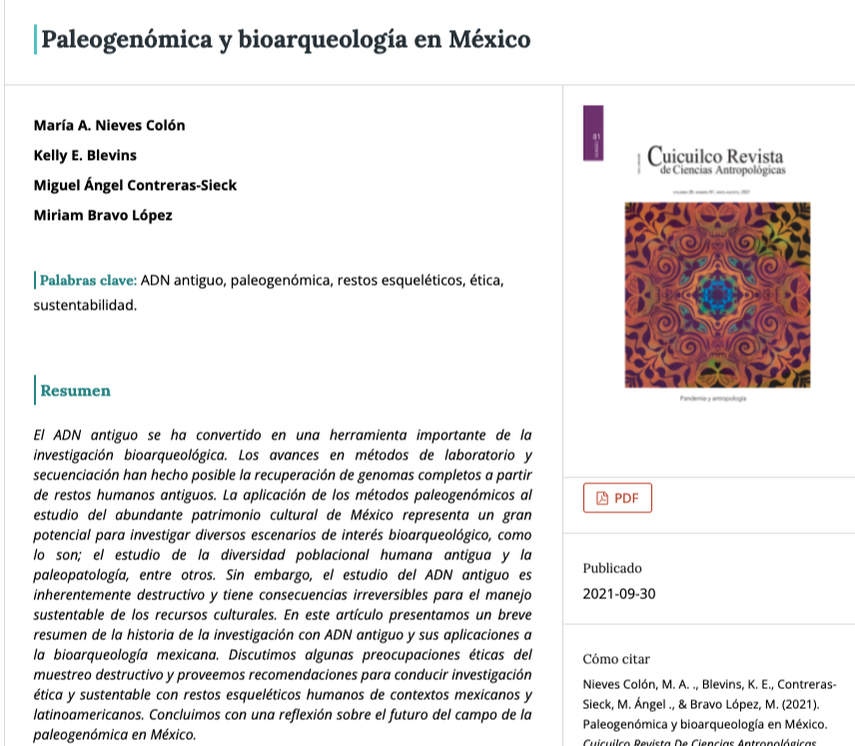
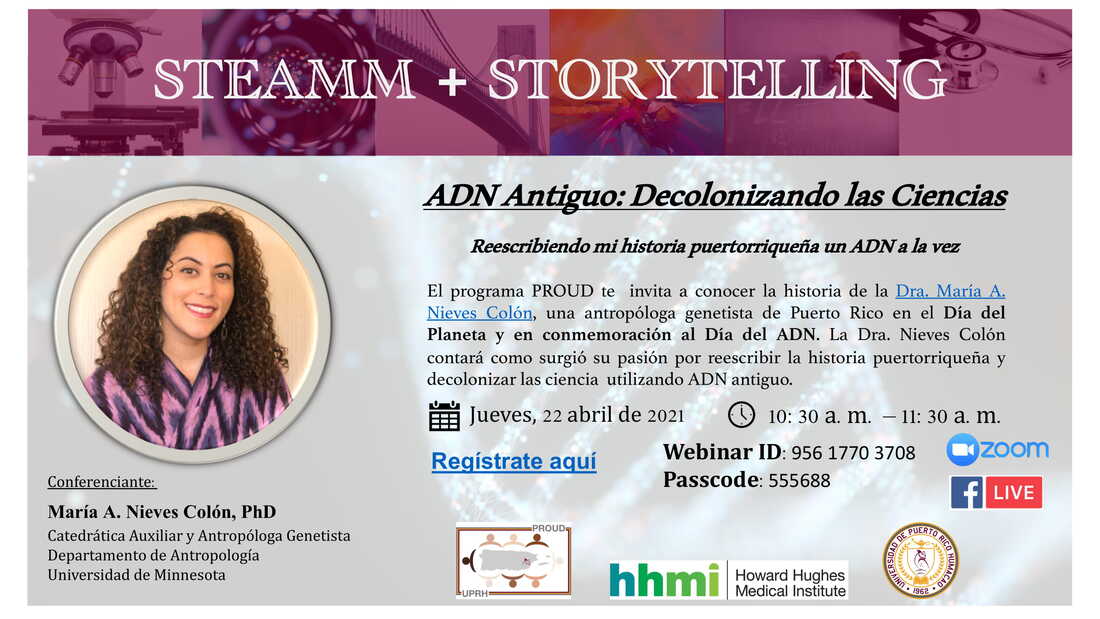
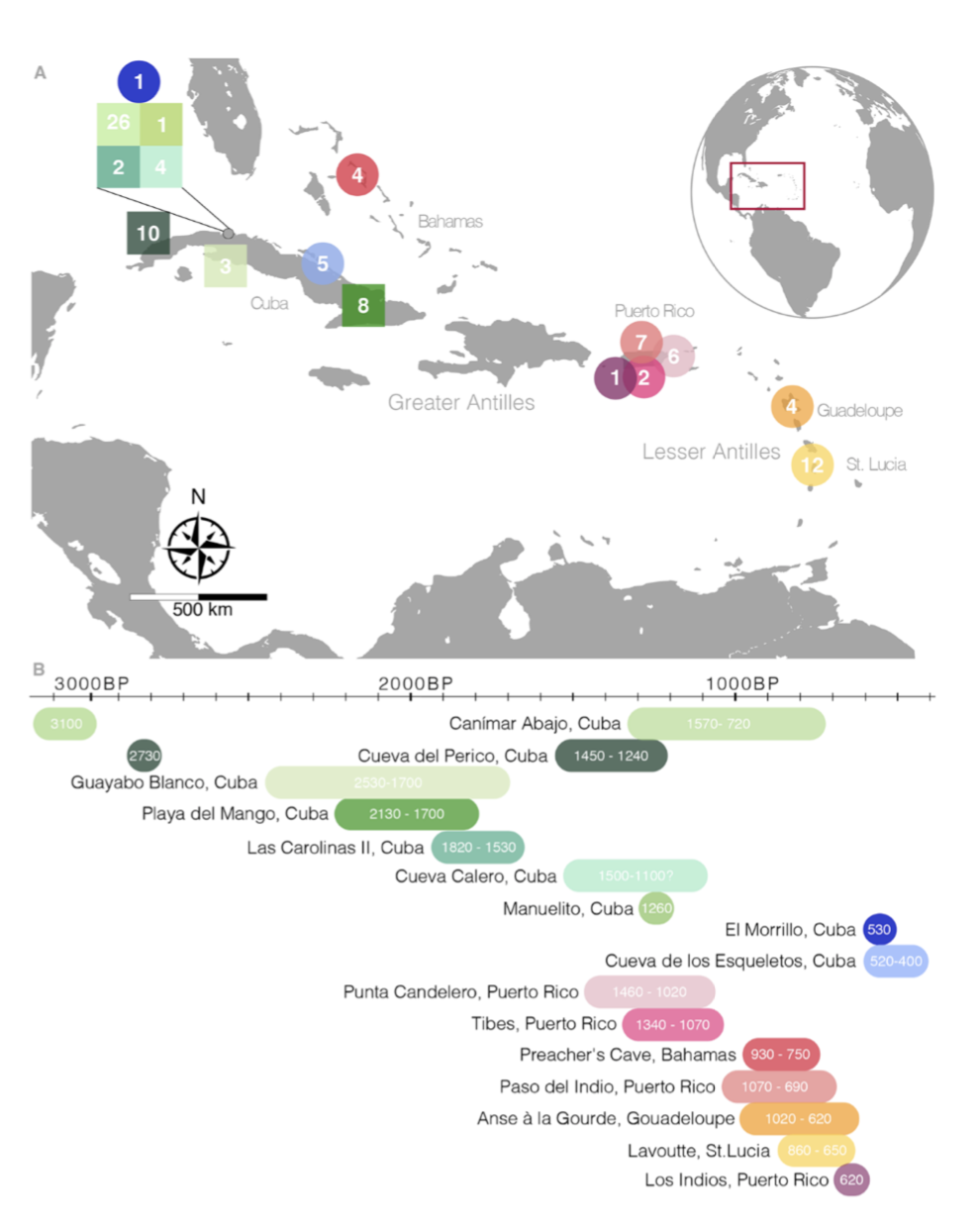
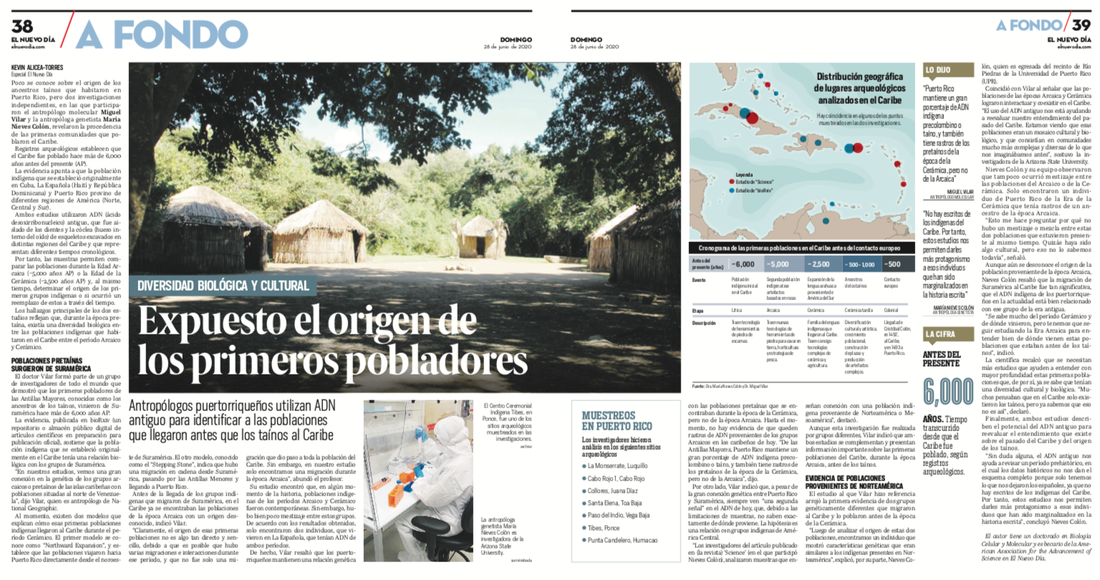
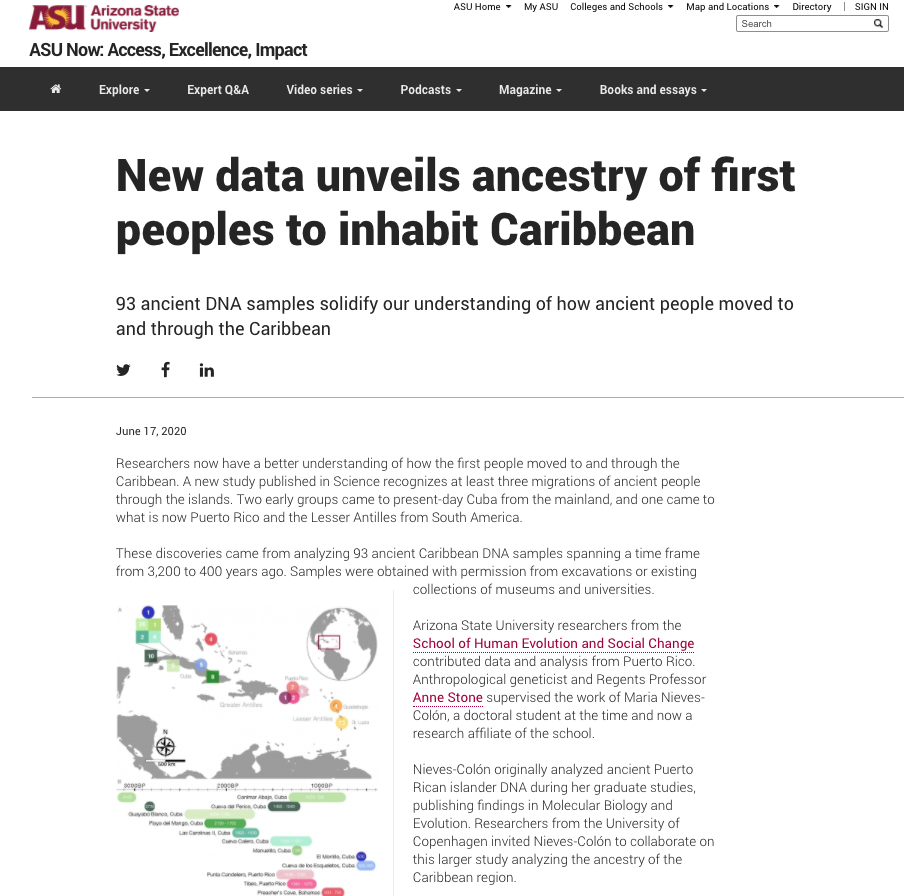
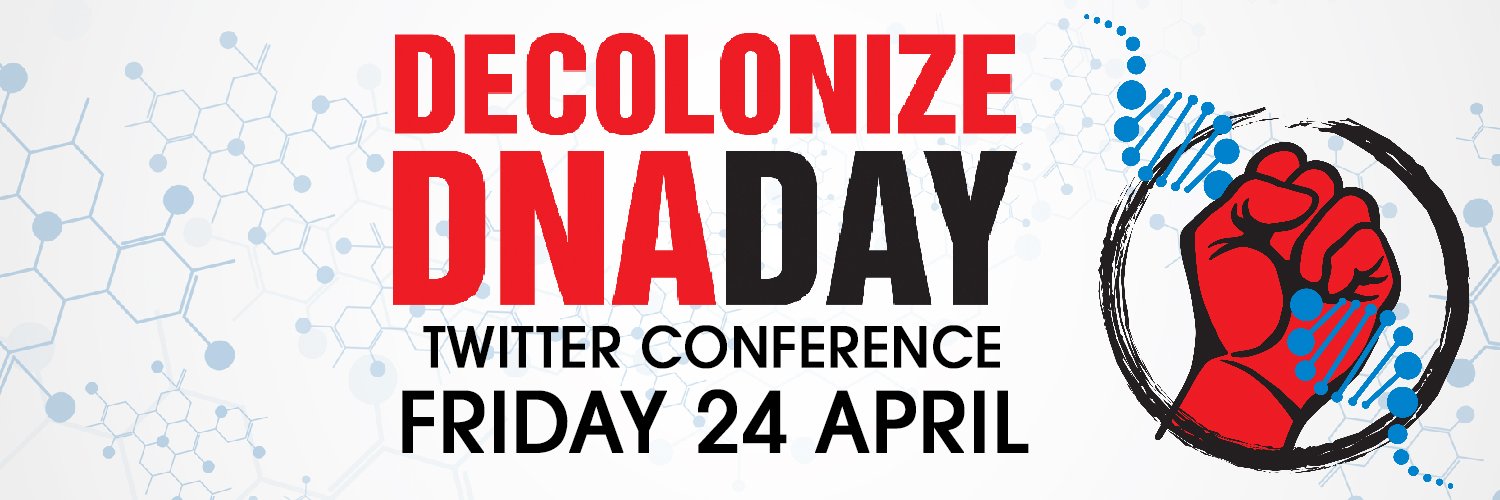
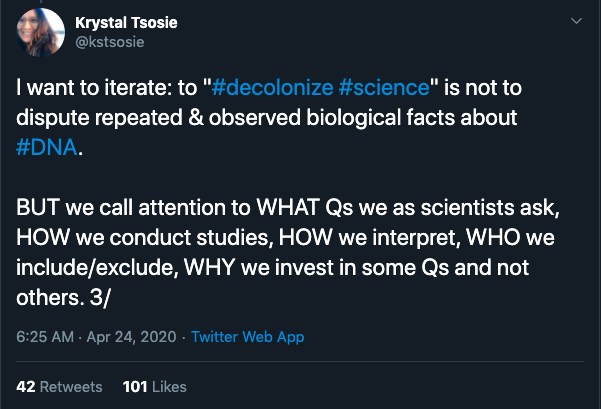
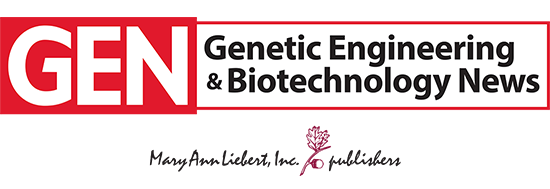
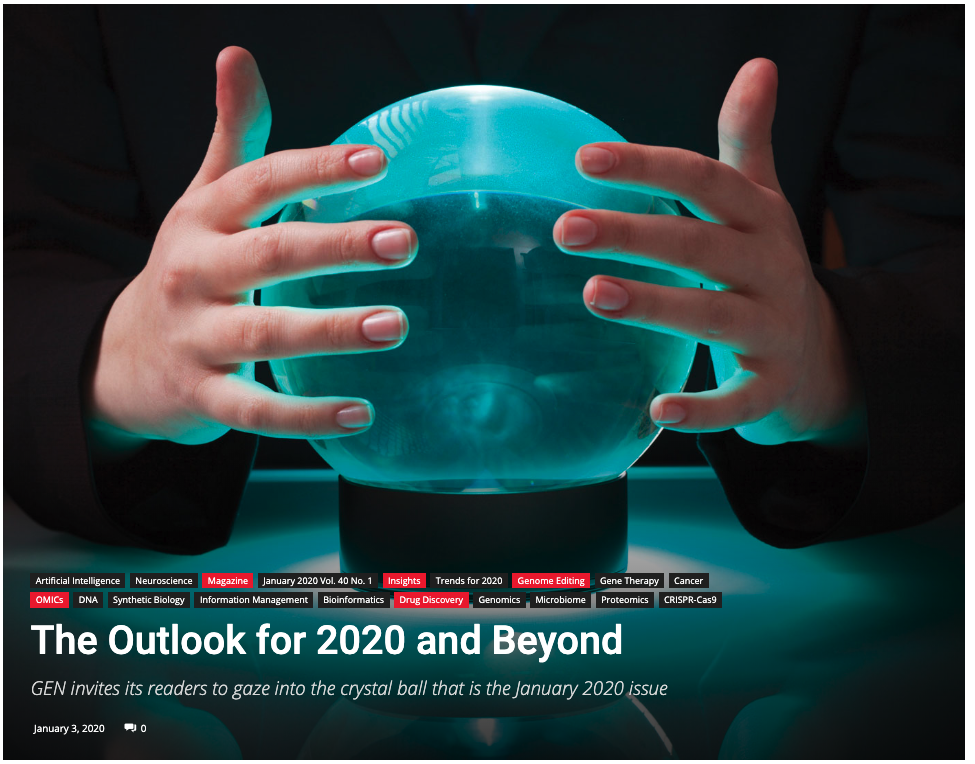
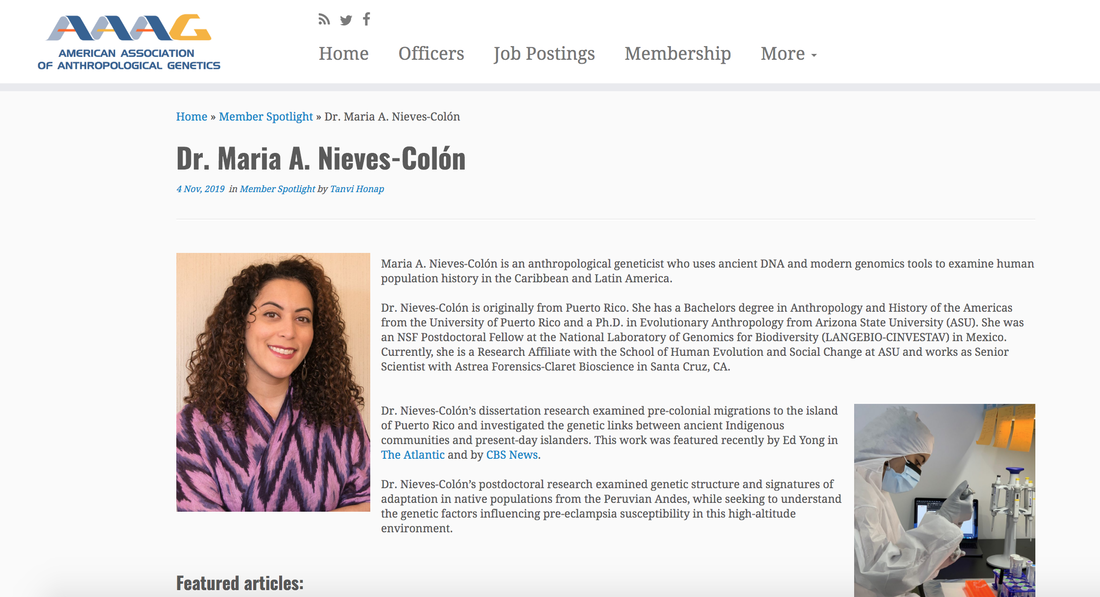
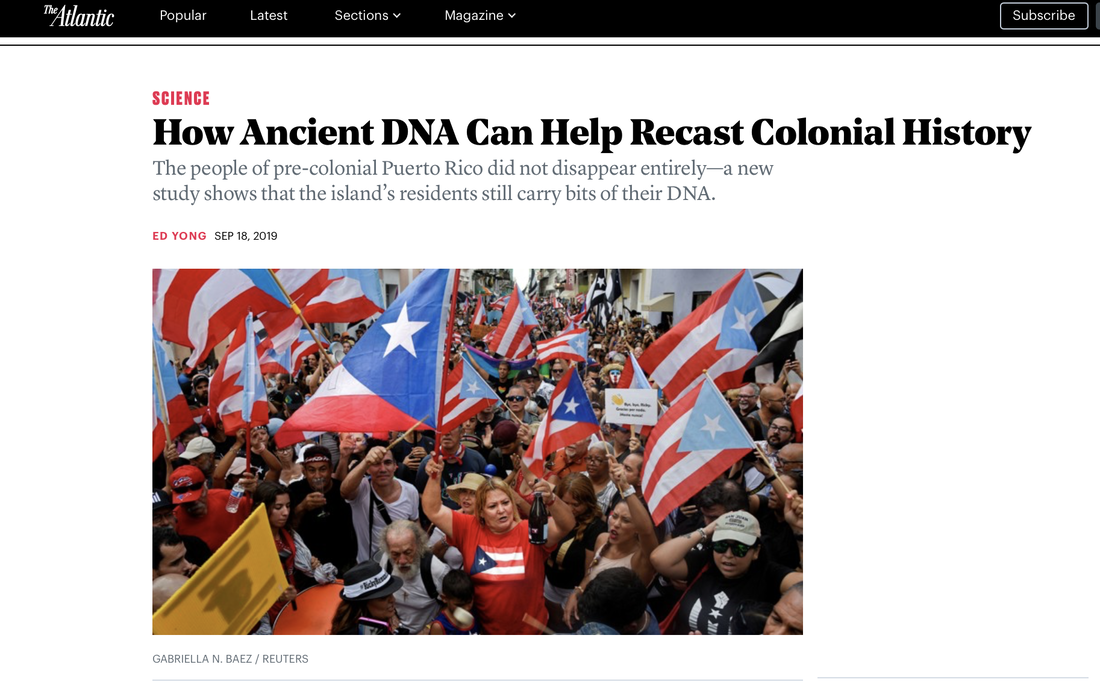
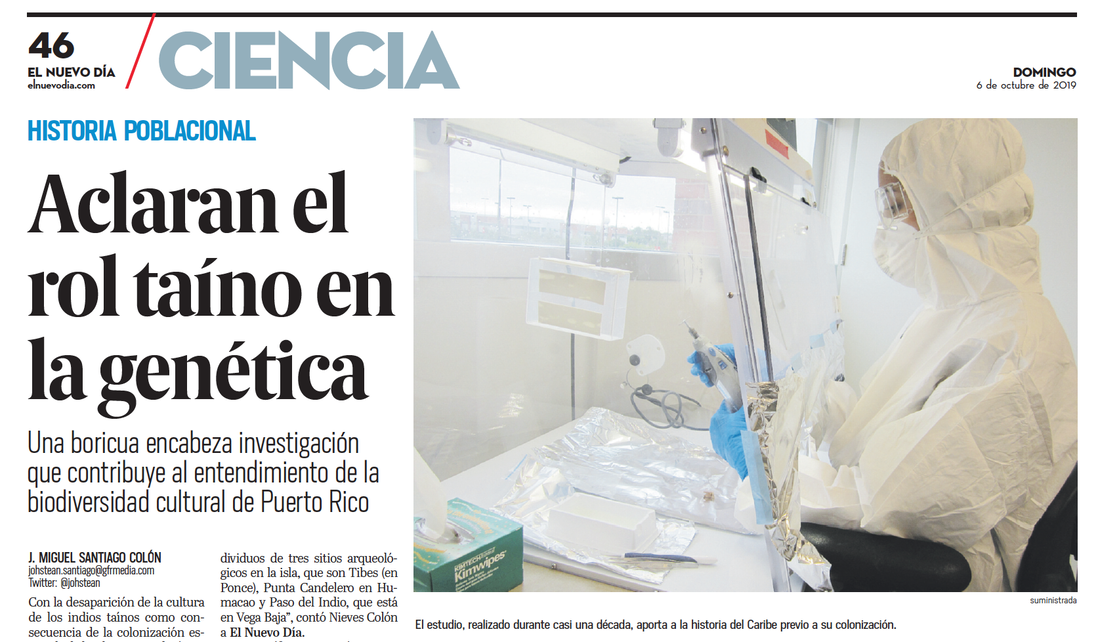
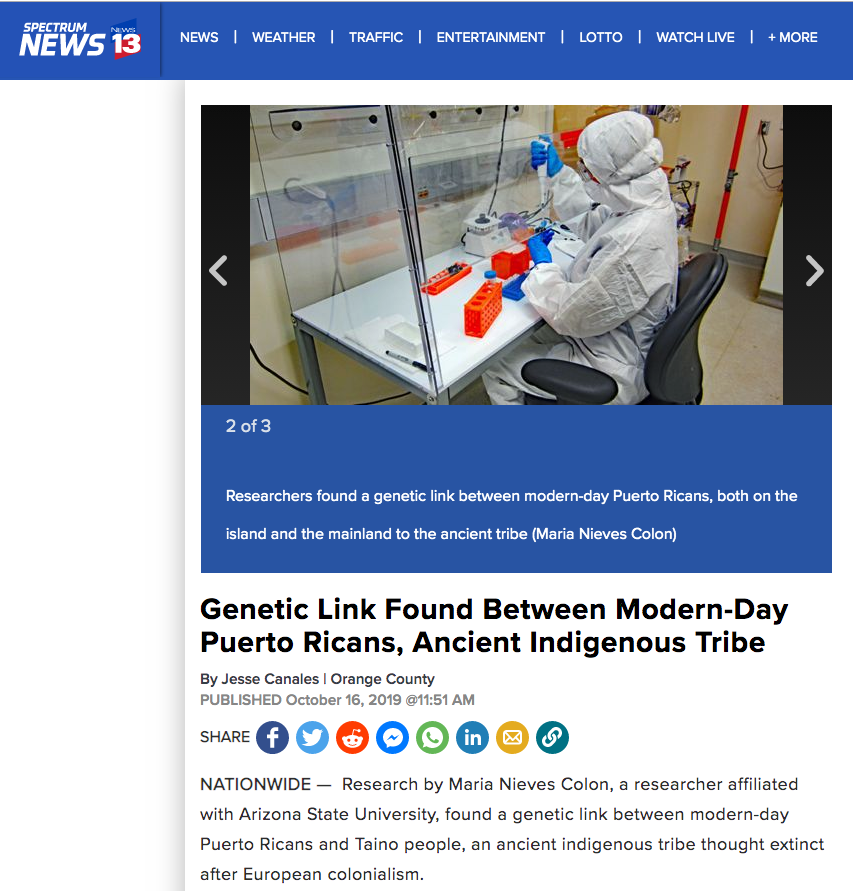
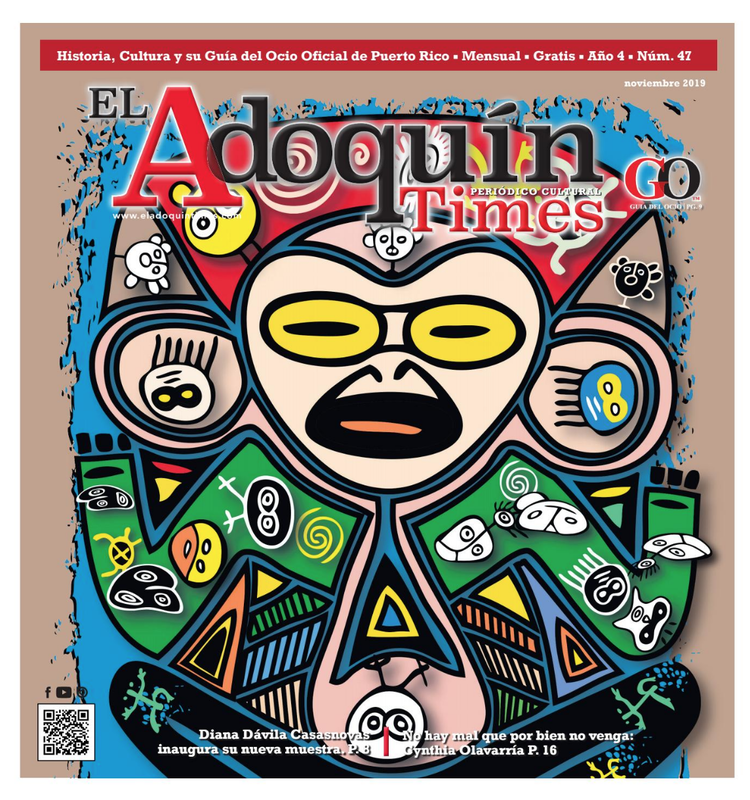
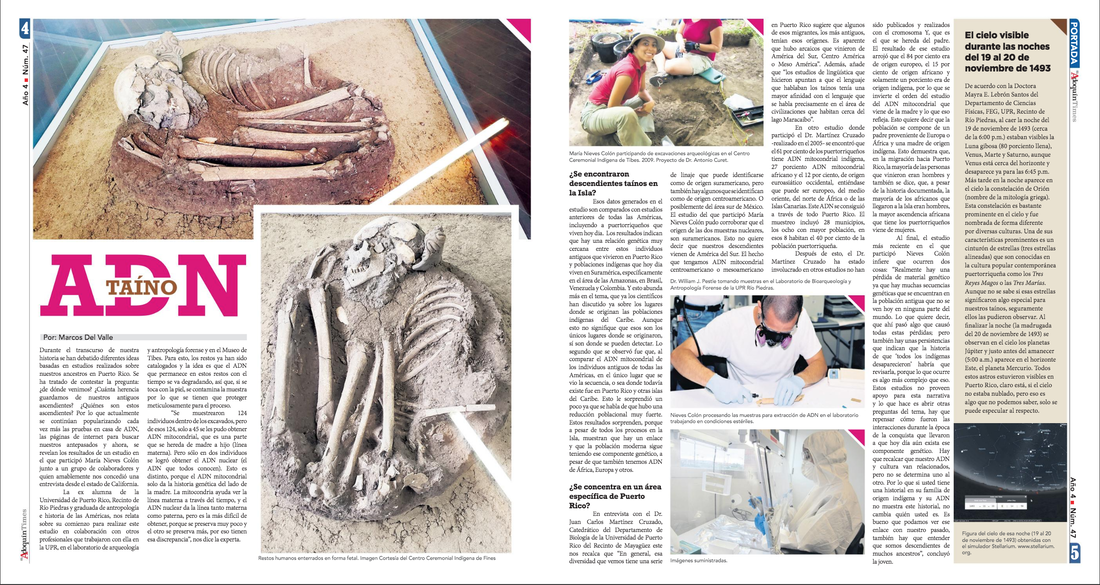
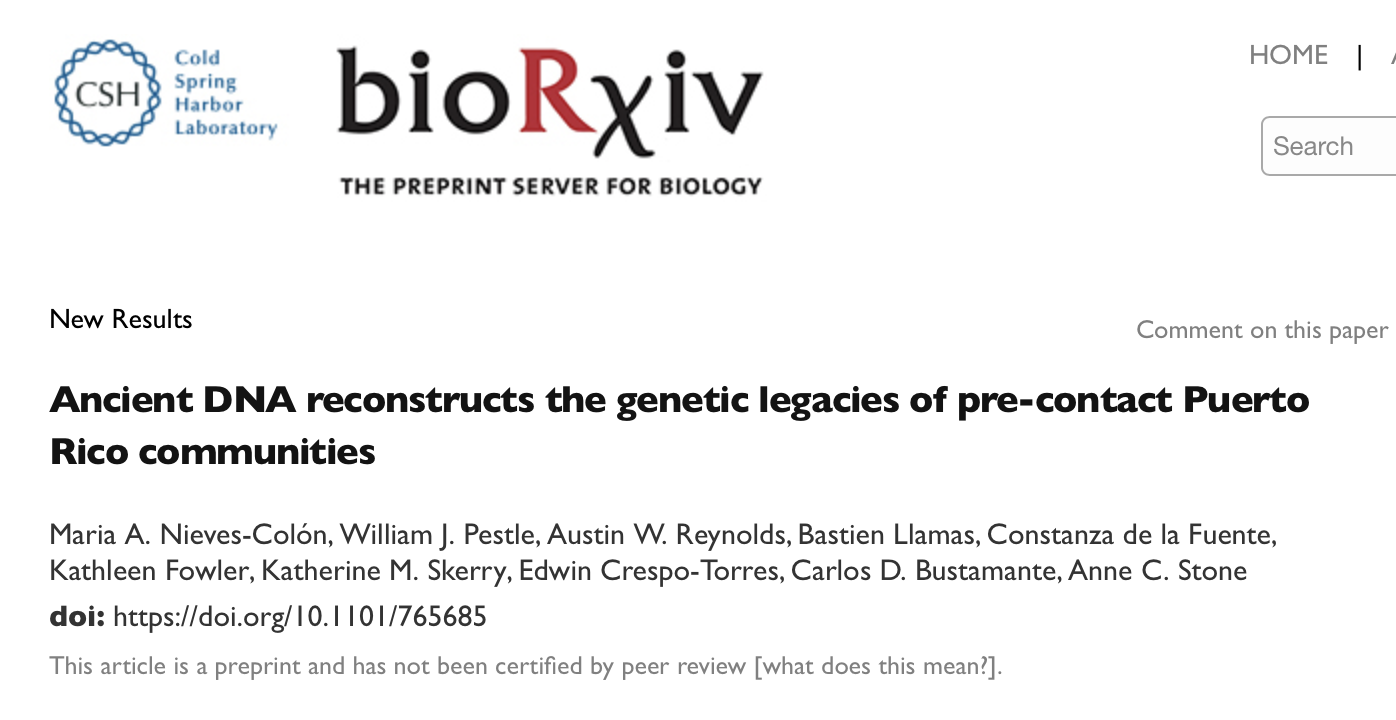
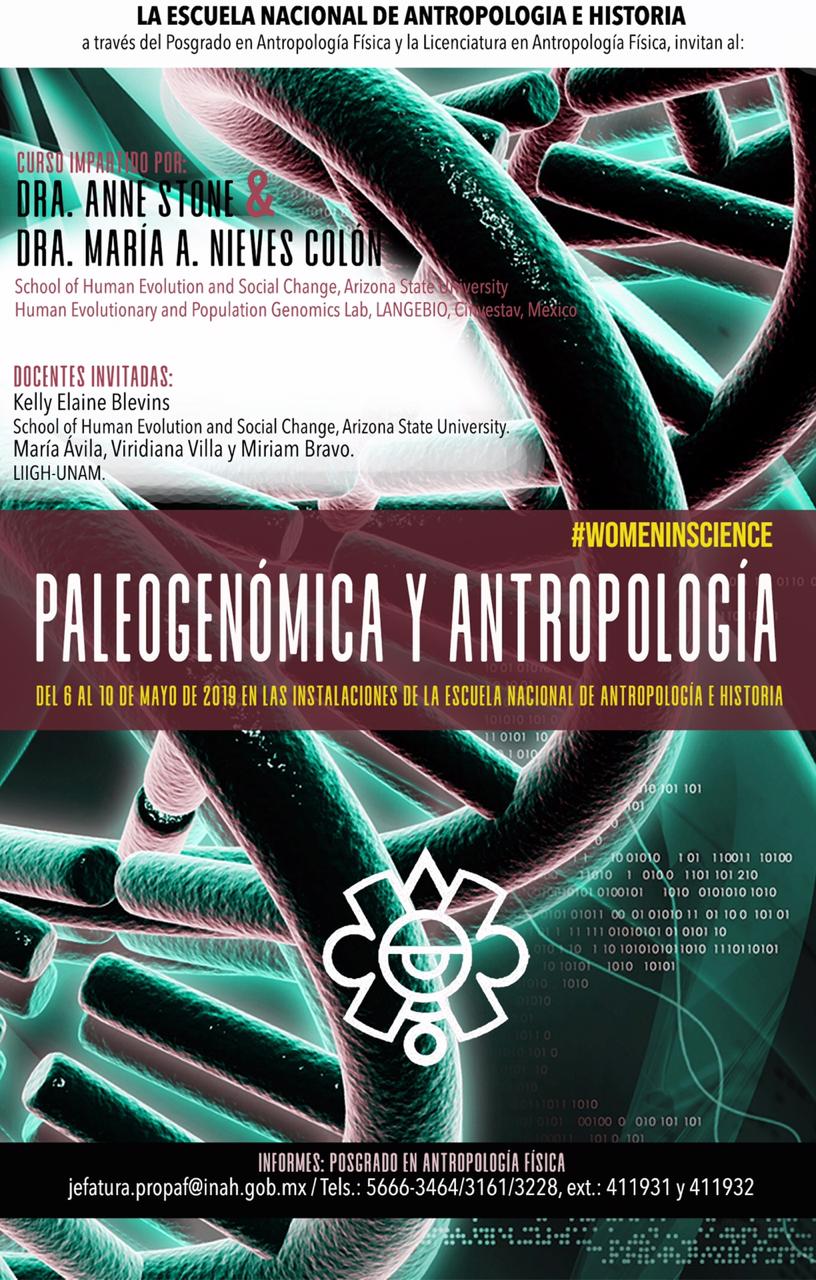
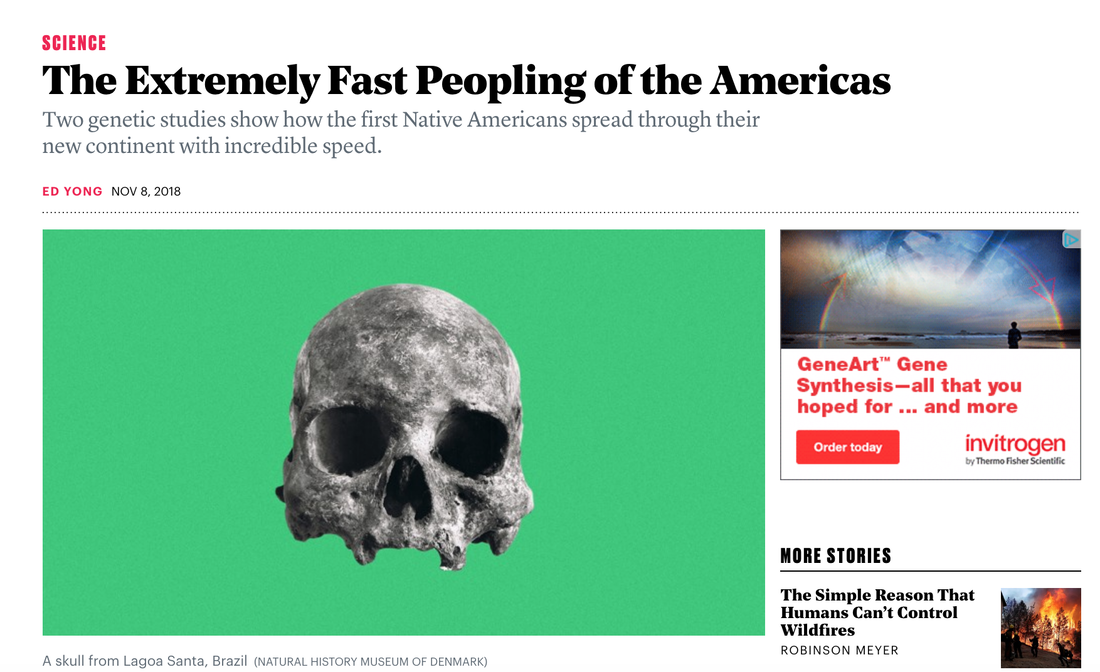
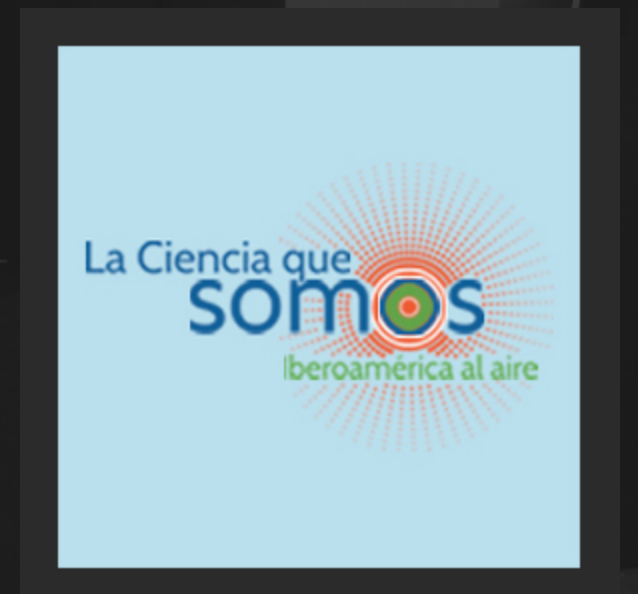
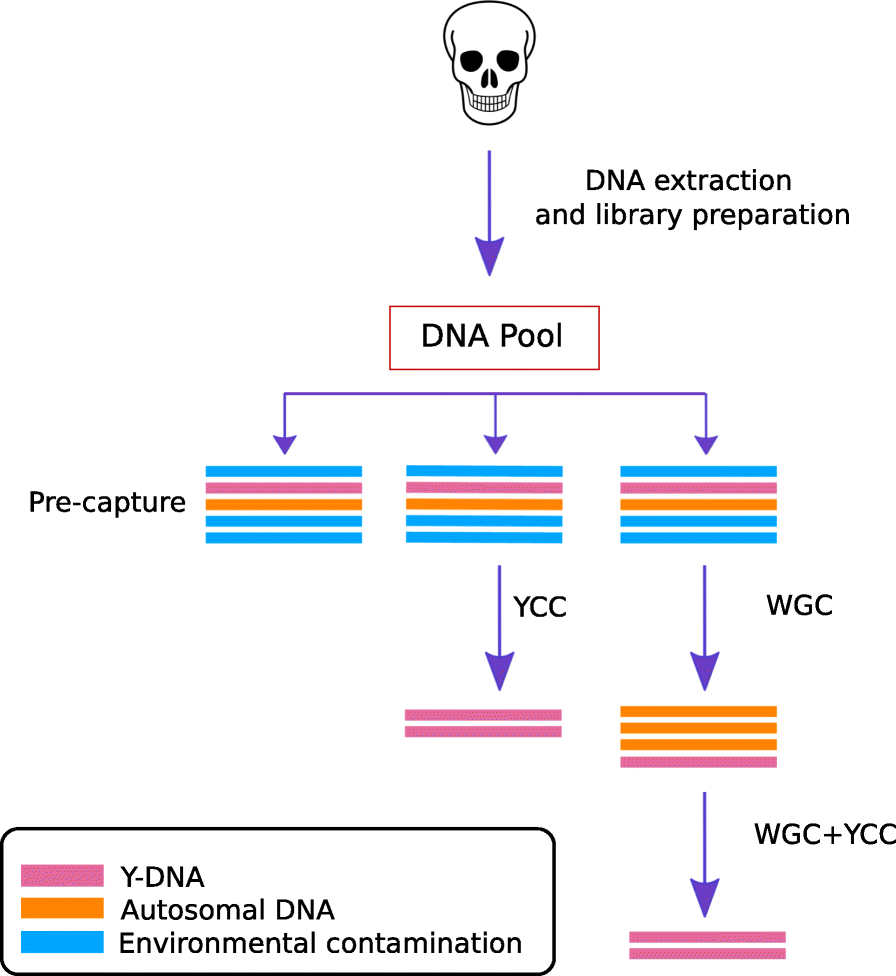
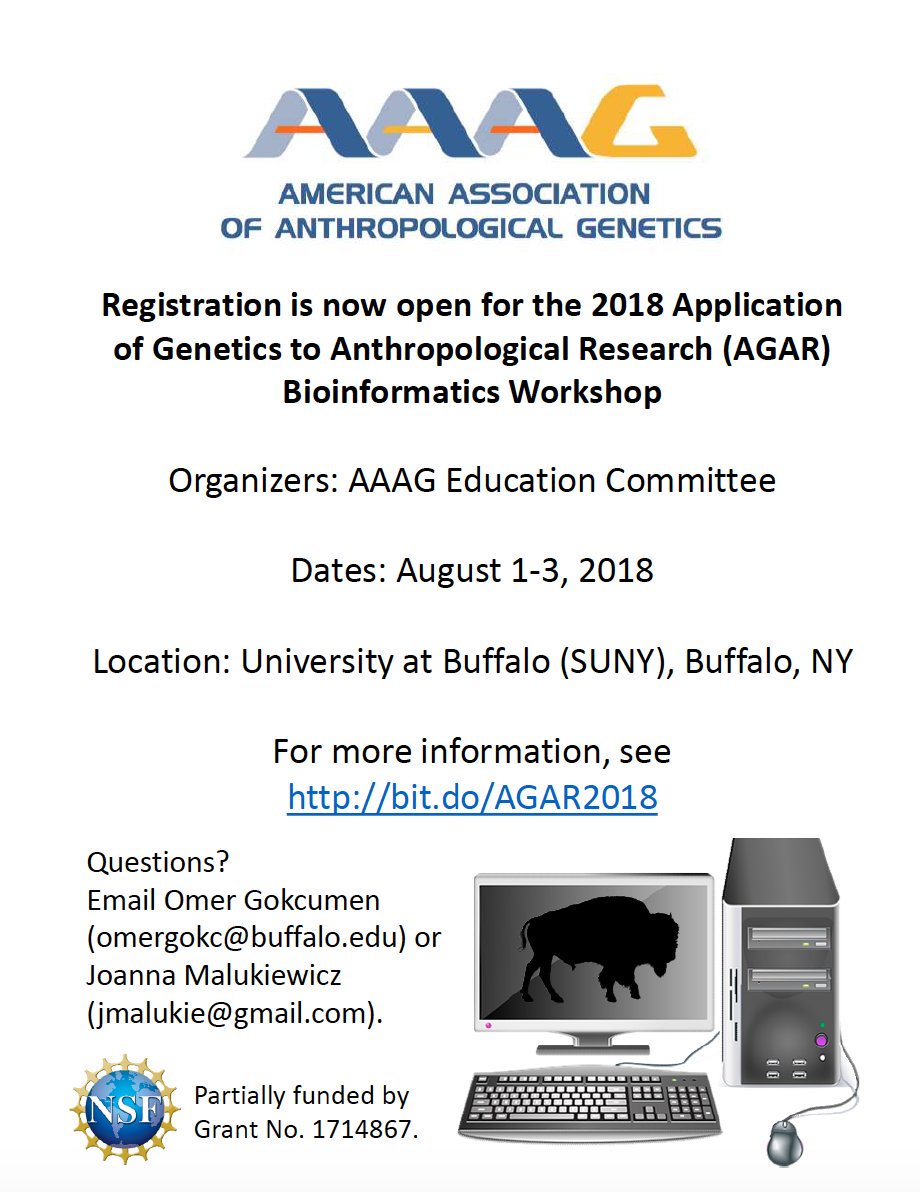
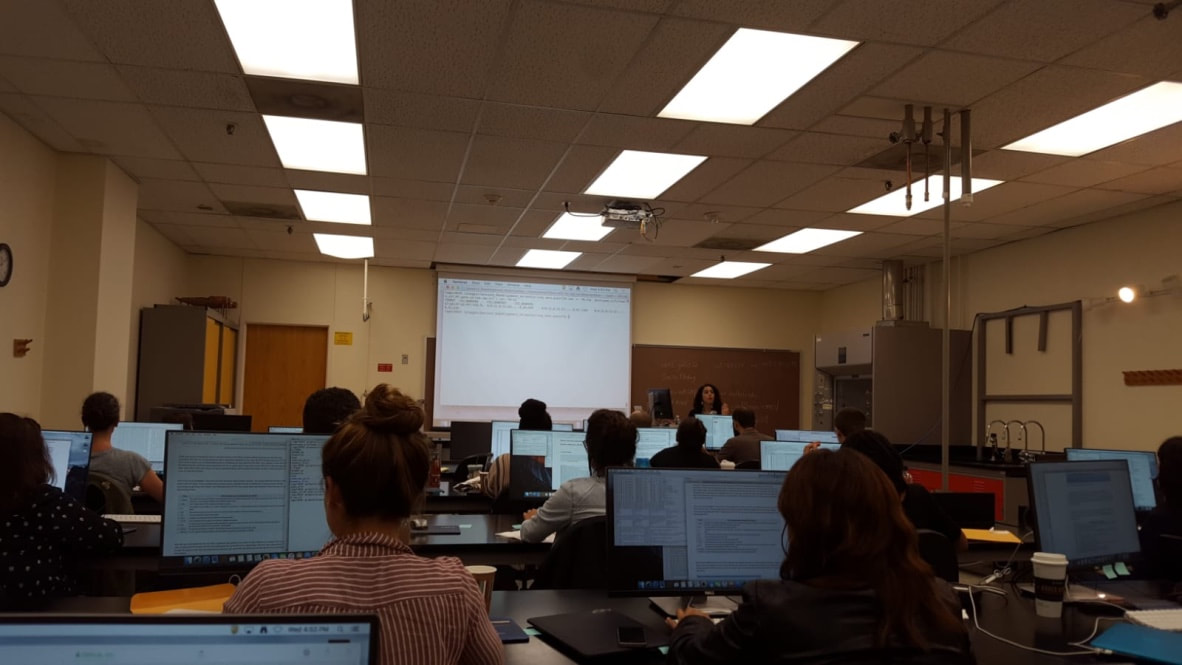
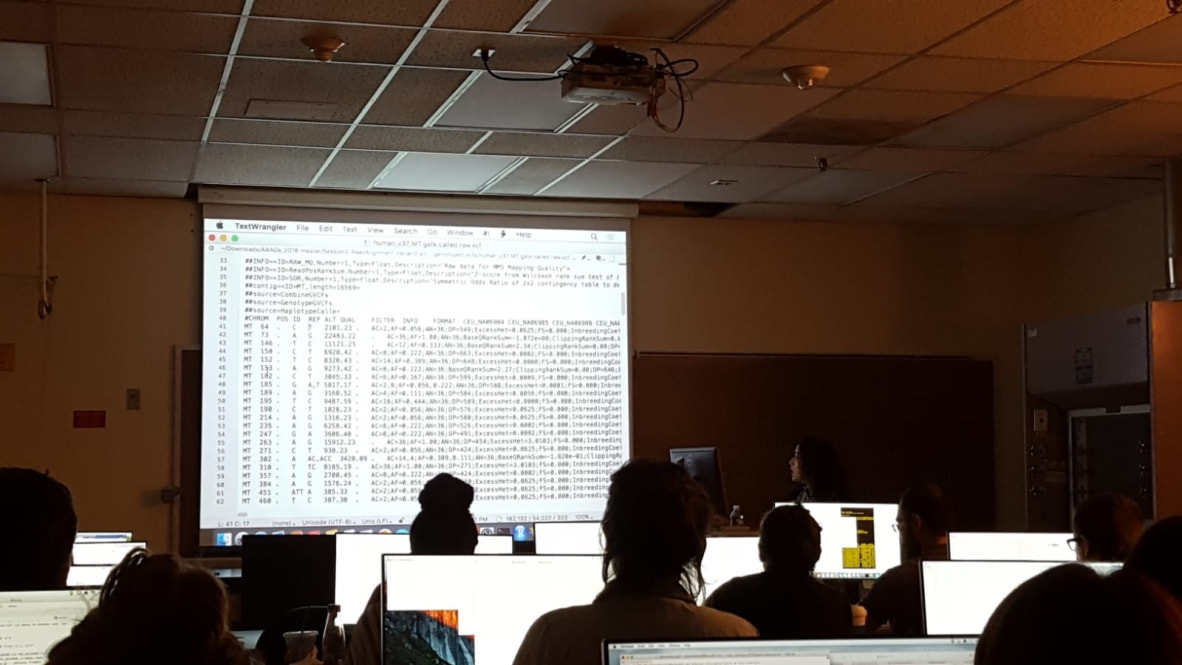
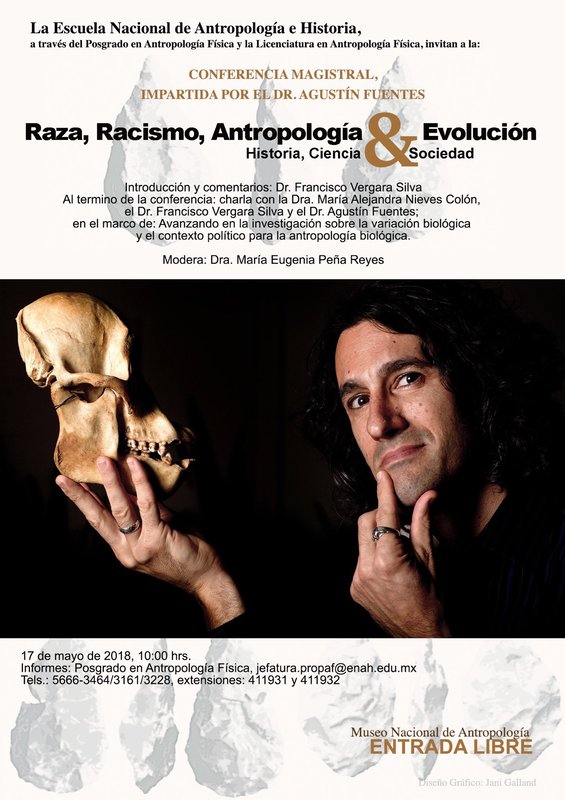
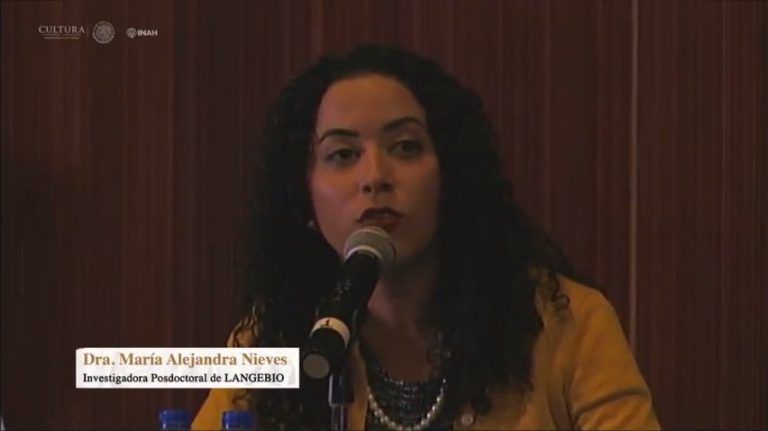
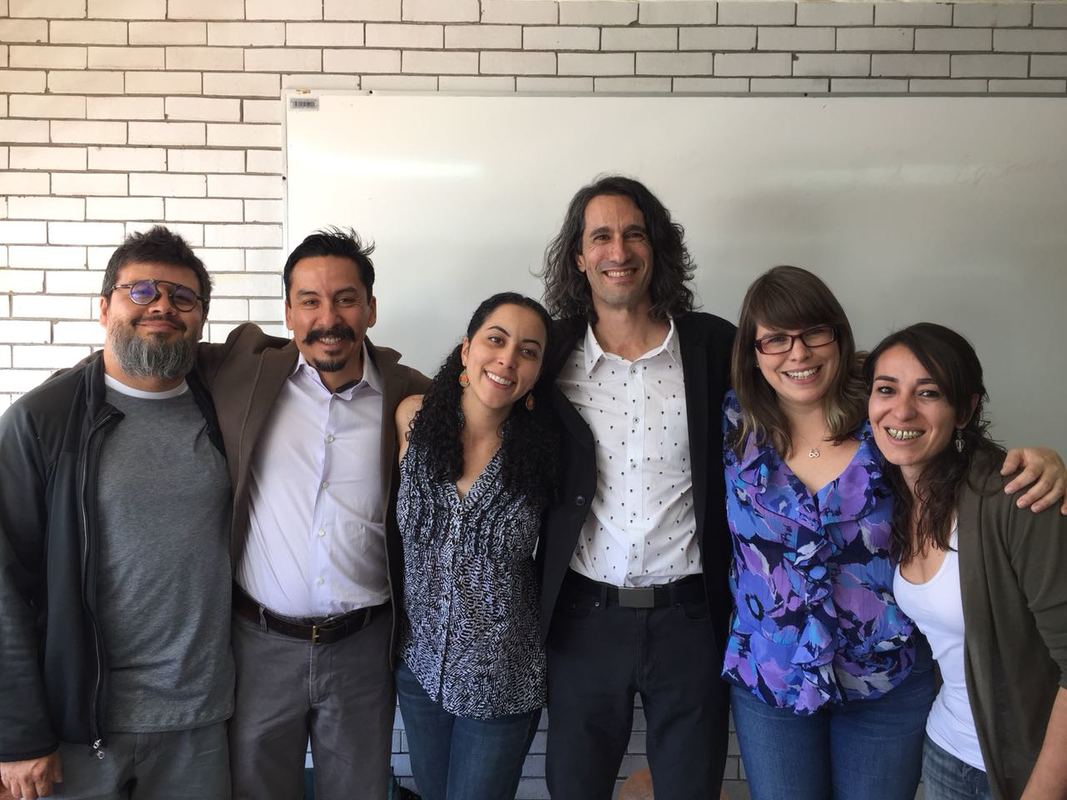
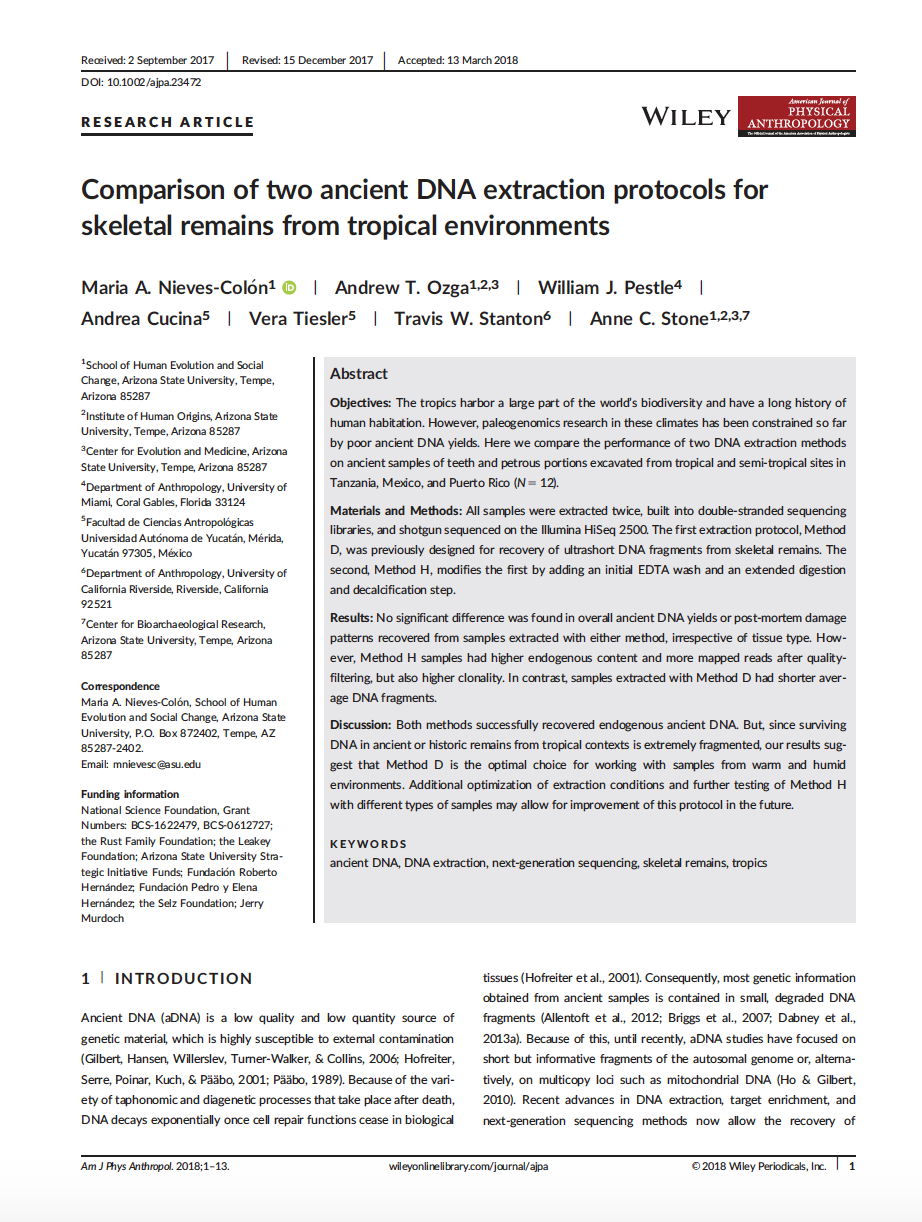
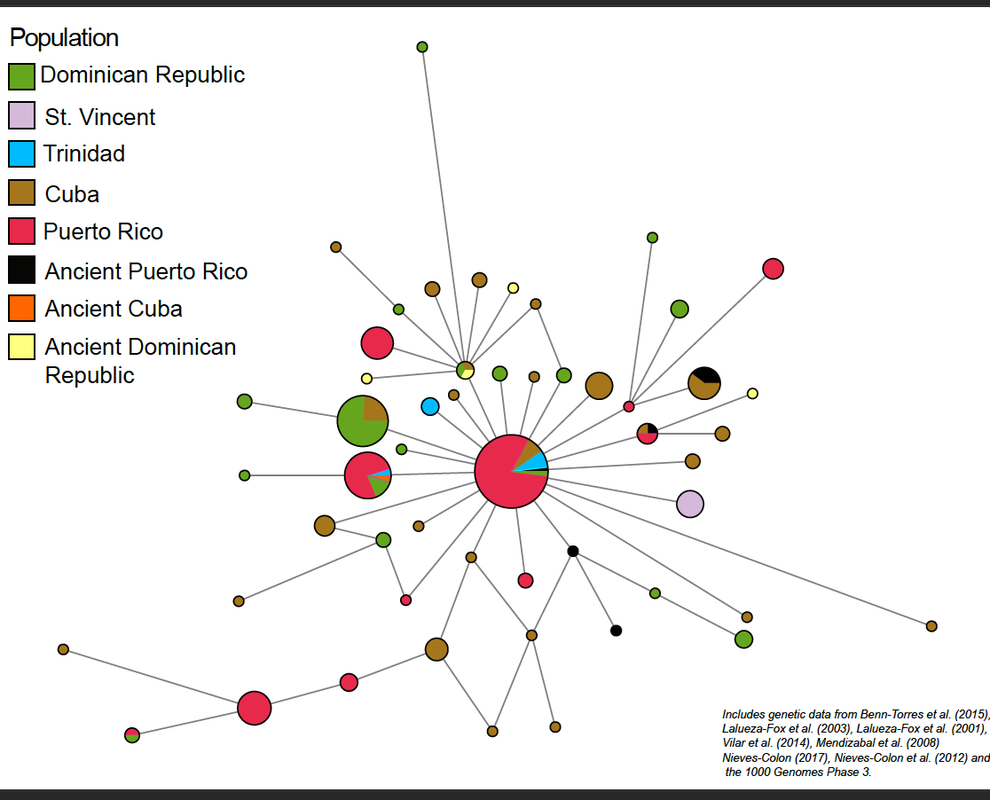
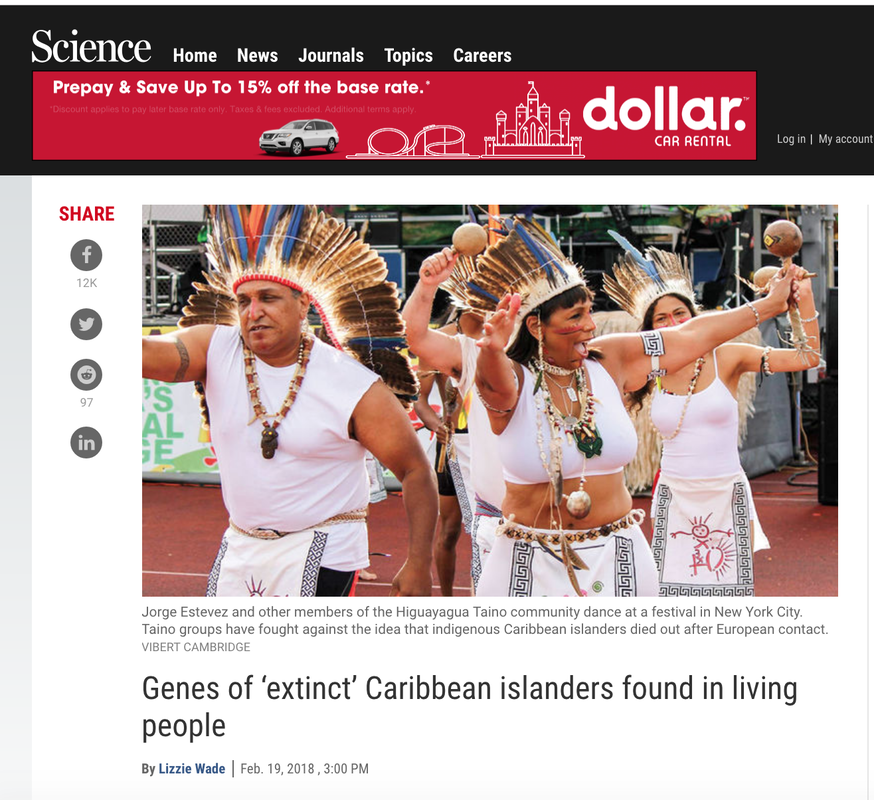
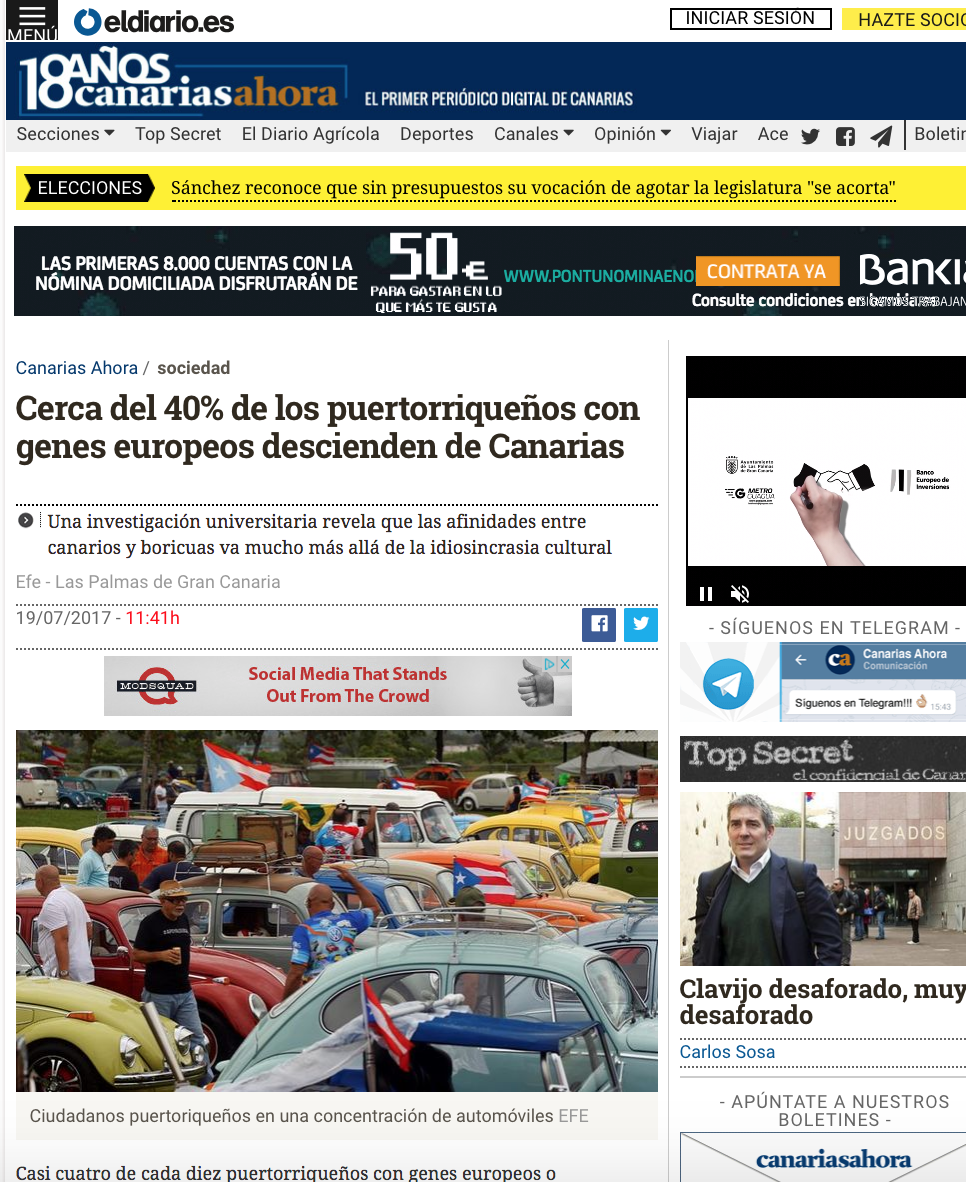
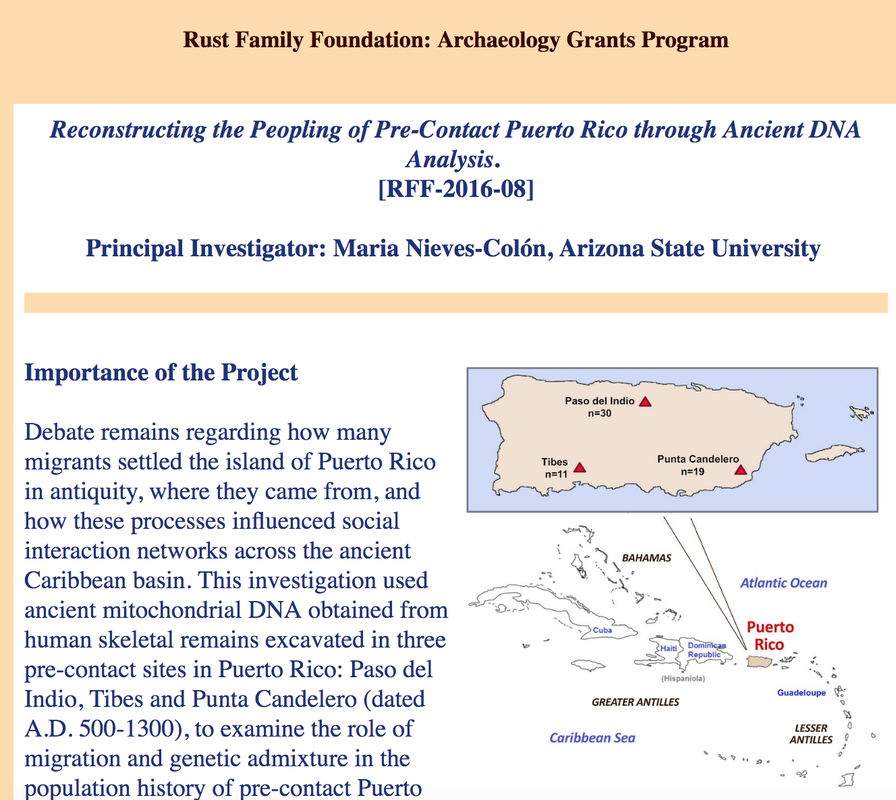
 RSS Feed
RSS Feed
